 By Chris McCusker, Ph.D.
By Chris McCusker, Ph.D.
Senior Consultant
The holiday season is upon us! Joyful times with family and friends. Traditions. Gifts.

There is one family tradition that I might skip this year: debates about politics and society with my brothers and sisters. Despite our intense mutual respect, things just might be too “hot” this go-around for such discussions. Covid. Mask mandates. Vaccine Mandates. Policing. Black Lives Matter protests. Allegations of rigged elections. January 6
th. Critical Race Theory. The Rittenhouse trial. The list is long and unrelenting. The emotions and divisions run deep, even within families.
Avoidance seems like a pretty solid strategy this year. But if things go astray and a debate sparks up, I plan to give the ultimate gift possible to my loved ones. Listening.
Years ago I had the honor of working on the faculty with Distinguished Professor (Emeritus) Victor Vroom at Yale School of Management. He taught me about a kind of listening that is likely to provide emotional catharsis when it is done. It is called “non-direct listening.” I will explain its logic and share with you some of Professor Vroom’s “Rules for Non-Direct Listening.”
While doing his graduate studies at the University of Michigan, Dr. Vroom worked with the great social psychologist Norman Maier. Maier documented how frustration in pursuit of goals leads to strong emotions that can limit productive thinking, known as cognitive problem solving.
Decades earlier, some famous research was done at Harvard Business School. Elton Mayo, Fritz Roelisberger, and others studied productivity at the Western Electric plant in Hawthorne, Illinois. During that project, Roethlisberger developed a new research technique known as the “non-direct interview.” The Harvard guys figured out that the workers at the plant didn’t trust them. They learned something only when they developed a non-directive interview strategy, which was designed simply to get the workers talking. It worked. The Hawthorne studies are still famous and are featured in almost every management textbook.
About the same time, at the University of Chicago, the great psychologist Carl Rogers invented a kind of therapy known as “non-direct counseling”. Rogers argued that a therapist should only listen and provide “unconditional positive regard,” or emotional support for clients. Therapists, argued Rogers, should not be directive- pointing clients in the right direction and offering solutions to problems. Rather, by only listening, and providing emotional support, Rogers found that most clients will figure things out for themselves. Non-direct counseling at the University of Chicago propelled that counseling center to new heights and earned Rogers world renown.
Professor Vroom built on this expertise in studying goal frustration and non-direct counseling and came up with some rules for what he calls “non-direct listening.” Vroom studied how listening, according to these rules, can provide “emotional catharsis,” or cleansing, and restore cognitive problem solving.
I will attempt to implement Vroom’s rules for non-direct listening if I am cornered into a debate this season. Here they are:
- Stop Talking. While it seems simple, this is so very difficult. Commit yourself to keeping your mouth closed. Focus on the physicality of it. No matter how grotesquely wrong you think the other might be: say nothing.
- Don’t interrupt. This is a close cousin to rule #1. Let the other completely finish. Often I feel like I know where someone is going with a statement and it is tempting to speed things up by interrupting and finishing their sentence for them. Do not interrupt. Remember listening is a gift. Let them finish.
- Don’t change the subject. It might get very uncomfortable and become tempting to turn the conversation toward the weather, sports, movies, memories, etc. rather than stick with it. Hear them out all the way on the topic. Even if it is several painful paragraphs of analysis that makes you cringe. Do not be directive and change the topic. Ride it out.
- Wait out pauses. There is a temptation to fill every moment of a conversation with noises from someone’s mouth. Bask in those moments of silence. For in those moments, the other’s brain chemistry might be changing. Catharsis might be happening! It could be working!
- Listen with your whole body. Put down the phone. Focus, focus, focus as if you are absorbing their words with all five senses. Take a sip of coffee if needed, but do not lose focus, or turn away, or make a face that says “have you lost your mind?”
- Mirroring. This last rule is difficult. Think of a mirror. A mirror shows you what you look like in the “here and now”, not what you looked like five minutes ago. Intermittently provide a cue that you are still “with them” by mirroring to them the last emotion expressed or last point they made. “I can see you are very upset about vaccines.” “You are saying the election was rigged.” Mirroring takes discipline. Do not put your ideas in the mirror. Do not approve or disapprove. The point is to say in some way, “I am still here with you.”
In my experience non-direct listening is very difficult for accomplished managers. Why? Because their success has been built on being directive. Being directive is an accomplished manager’s bread and butter. Non-direct listening goes against the grain. It is uncomfortable but can be learned.
We are living in an era with a lot of what my colleague
Barb Reilly calls “juicy conflict.” It has been quite a year. Listening may be the greatest gift you can offer this holiday season if you are engaged in discussions of politics and society. By doing “non-direct listening” you can provide emotional catharsis to a loved one. And just maybe, on their own, the others may feel inclined to think through our difficult problems with less emotionality and more complexity.
Happy Holidays
More about Chris

 By Chris McCusker, Ph.D.
By Chris McCusker, Ph.D. There is one family tradition that I might skip this year: debates about politics and society with my brothers and sisters. Despite our intense mutual respect, things just might be too “hot” this go-around for such discussions. Covid. Mask mandates. Vaccine Mandates. Policing. Black Lives Matter protests. Allegations of rigged elections. January 6th. Critical Race Theory. The Rittenhouse trial. The list is long and unrelenting. The emotions and divisions run deep, even within families.
Avoidance seems like a pretty solid strategy this year. But if things go astray and a debate sparks up, I plan to give the ultimate gift possible to my loved ones. Listening.
Years ago I had the honor of working on the faculty with Distinguished Professor (Emeritus) Victor Vroom at Yale School of Management. He taught me about a kind of listening that is likely to provide emotional catharsis when it is done. It is called “non-direct listening.” I will explain its logic and share with you some of Professor Vroom’s “Rules for Non-Direct Listening.”
While doing his graduate studies at the University of Michigan, Dr. Vroom worked with the great social psychologist Norman Maier. Maier documented how frustration in pursuit of goals leads to strong emotions that can limit productive thinking, known as cognitive problem solving.
Decades earlier, some famous research was done at Harvard Business School. Elton Mayo, Fritz Roelisberger, and others studied productivity at the Western Electric plant in Hawthorne, Illinois. During that project, Roethlisberger developed a new research technique known as the “non-direct interview.” The Harvard guys figured out that the workers at the plant didn’t trust them. They learned something only when they developed a non-directive interview strategy, which was designed simply to get the workers talking. It worked. The Hawthorne studies are still famous and are featured in almost every management textbook.
About the same time, at the University of Chicago, the great psychologist Carl Rogers invented a kind of therapy known as “non-direct counseling”. Rogers argued that a therapist should only listen and provide “unconditional positive regard,” or emotional support for clients. Therapists, argued Rogers, should not be directive- pointing clients in the right direction and offering solutions to problems. Rather, by only listening, and providing emotional support, Rogers found that most clients will figure things out for themselves. Non-direct counseling at the University of Chicago propelled that counseling center to new heights and earned Rogers world renown.
Professor Vroom built on this expertise in studying goal frustration and non-direct counseling and came up with some rules for what he calls “non-direct listening.” Vroom studied how listening, according to these rules, can provide “emotional catharsis,” or cleansing, and restore cognitive problem solving.
I will attempt to implement Vroom’s rules for non-direct listening if I am cornered into a debate this season. Here they are:
There is one family tradition that I might skip this year: debates about politics and society with my brothers and sisters. Despite our intense mutual respect, things just might be too “hot” this go-around for such discussions. Covid. Mask mandates. Vaccine Mandates. Policing. Black Lives Matter protests. Allegations of rigged elections. January 6th. Critical Race Theory. The Rittenhouse trial. The list is long and unrelenting. The emotions and divisions run deep, even within families.
Avoidance seems like a pretty solid strategy this year. But if things go astray and a debate sparks up, I plan to give the ultimate gift possible to my loved ones. Listening.
Years ago I had the honor of working on the faculty with Distinguished Professor (Emeritus) Victor Vroom at Yale School of Management. He taught me about a kind of listening that is likely to provide emotional catharsis when it is done. It is called “non-direct listening.” I will explain its logic and share with you some of Professor Vroom’s “Rules for Non-Direct Listening.”
While doing his graduate studies at the University of Michigan, Dr. Vroom worked with the great social psychologist Norman Maier. Maier documented how frustration in pursuit of goals leads to strong emotions that can limit productive thinking, known as cognitive problem solving.
Decades earlier, some famous research was done at Harvard Business School. Elton Mayo, Fritz Roelisberger, and others studied productivity at the Western Electric plant in Hawthorne, Illinois. During that project, Roethlisberger developed a new research technique known as the “non-direct interview.” The Harvard guys figured out that the workers at the plant didn’t trust them. They learned something only when they developed a non-directive interview strategy, which was designed simply to get the workers talking. It worked. The Hawthorne studies are still famous and are featured in almost every management textbook.
About the same time, at the University of Chicago, the great psychologist Carl Rogers invented a kind of therapy known as “non-direct counseling”. Rogers argued that a therapist should only listen and provide “unconditional positive regard,” or emotional support for clients. Therapists, argued Rogers, should not be directive- pointing clients in the right direction and offering solutions to problems. Rather, by only listening, and providing emotional support, Rogers found that most clients will figure things out for themselves. Non-direct counseling at the University of Chicago propelled that counseling center to new heights and earned Rogers world renown.
Professor Vroom built on this expertise in studying goal frustration and non-direct counseling and came up with some rules for what he calls “non-direct listening.” Vroom studied how listening, according to these rules, can provide “emotional catharsis,” or cleansing, and restore cognitive problem solving.
I will attempt to implement Vroom’s rules for non-direct listening if I am cornered into a debate this season. Here they are:

